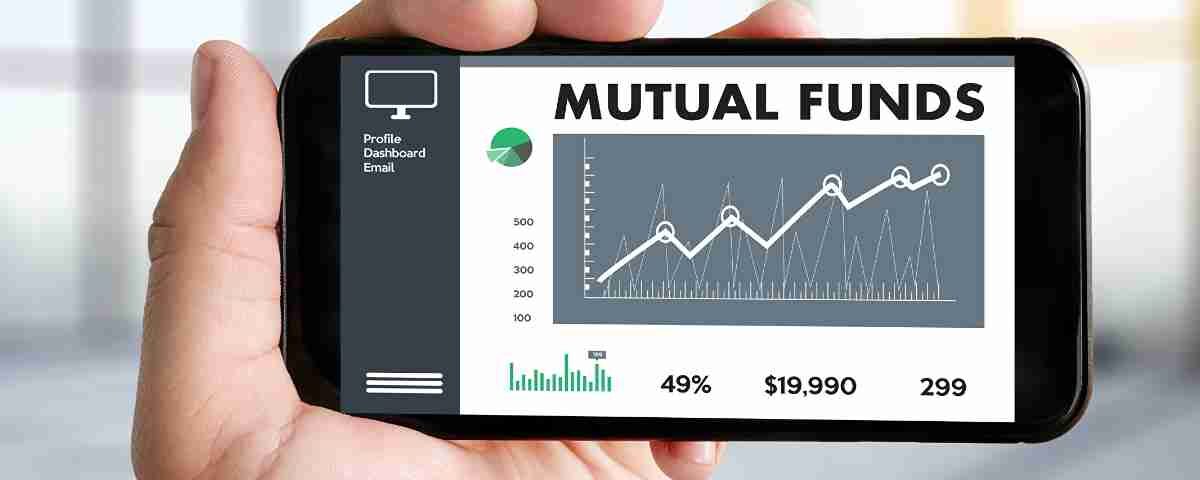
The Ultimate Beginner’s World to Micro-Investing for Students
June 8, 2024
8 Amazing Ways to Research a Company Before an Interview
June 22, 2024How to Manage Your First Salary: Expert Advice for a Secure and Confident Start
Receiving your first salary is an exciting experience. I still remember the thrill of seeing my first paycheck and feeling a sense of accomplishment. But at the same time, it is also important not to get carried away and make some thoughtful financial decisions which will help you on a long way. Learning how to manage expenses effectively with a new salary is essential for a bright financial future and you should start to build your foundation from the very first. In this blog post, we’ll explore smart investing tips for recent graduates who got their first salary including methods to effectively allocate your expenses, and ways to build a secure financial future. The below-mentioned strategies will make you more confident and empowered, knowing that you’re taking the right steps towards financial stability.
Understanding Your Take-Home Pay
Learning to manage your first salary can be an exciting yet confusing challenge. The day you receive your first paycheck, you’re planning for bright and trouble-free financial independence should also start. Here’s how you can start this exciting chapter.
Check the Salary Statement
The first step to do is to closely analyse your salary statement. Your salary statement consists of different components such as basic salary, house rent allowance, and other perks. Understanding these elements can clarify what portion is taxable and what isn’t. For instance, in your first paycheck and thereafter you might find that certain allowances, like transport or education, are tax-free up to specified limits. It’s crucial to know these details to take advantage of tax benefits.
Verify Against Your Offer
I need not tell you to compare your salary statement with the original job offer. But still, you should ensure that all commitments are met. Mistakes can happen, so it’s vital to verify that everything matches. If there’s any discrepancy, talk to your HR department and get a clarification or correction. Your new salary should reflect all terms discussed during the hiring process.
Restructure Salary Components
Find out if your company allows restructuring of salary components every 6 months of year-end to optimize your tax savings. This might involve adjusting your salary components to include more tax-free allowances. For example, increasing your contributions to retirement savings can be an effective strategy for reducing taxable income. Consulting with HR or the finance team about these smart saving tips can lead to significant long-term benefits.
Monthly Budget Creation

Landing your first job often comes with relocating to a new city, brimming with excitement and new beginnings. Amidst all this wonder, it’s crucial to create a monthly budget that accounts for the extra expenditures which are inevitable. Housing rent, electricity, groceries, and transport are the core essentials that demand rigorous attention. But let’s not forget a few others like those OTT subscriptions and occasional shopping experiences that come along with the newfound independence.
Creating a budget is not just about expenses and a savings list. A well-planned budget helps you make the most of your earnings by ensuring that every dollar is allocated effectively. Understanding where the money outflow is very crucial. During my initial years, I used to maintain a logbook for all the expenses made for a day (however small it is) before hitting the bed. This habit will become a simple yet effective approach to differentiate between needs and wants. Needs are non-negotiable essentials like groceries, rent, and utilities. Wants, however, encompass personal indulgences, like dining out or shopping for that stylish jacket you spotted last weekend.
Here I want to share my golden rule. Separate savings from expenses right from day one. Think of it as paying yourself first. Allocate a portion of your first salary (typically 10%) towards savings the moment you receive it. This might seem tough when you feel that the list of expenses for the month is a long one, but trust me, you will start to manage and habituate it as the future benefits outweigh the immediate sacrifices.
Imagine looking at your bank account a year later and feeling proud of the substantial savings you’ve accumulated because you learned a few effective strategies for managing expenses with your new salary.
Understanding Student Loan Repayment

Student loan repayment has been a very key component for those new graduates as well as ever perhaps for a few struggling people. Here understanding your loan’s grace period and repayment schedule is essential. Do you know that most student loans offer a six-month grace period after graduation before repayments begin? This breathing room is for you to settle down with your new job and manage your newfound responsibilities. Timing is everything when it comes to financial planning. Remember, effective financial management has more to do with your skills and discipline than the size of your salary. During this grace period, your task is to know when and how much you need to repay and come up with a plan to settle your dues as soon as possible.
Importance of Developing a Repayment Plan
Creating a repayment plan may sound boring and confusing but it’s one of the smartest financial decisions you will make when you get your first salary. Many recent graduates do not take it seriously and overlook the importance of this step, often leading to financial strain. Let’s look at some data: –
The student loan debt in America has been a serious issue, with the total education debt reaching a staggering $1.74 trillion as of the third quarter of 2023. The average debt among all student loan borrowers was $38,290. While 47% of the total outstanding federal loan debt was held by just 10% of borrowers (average $80,000 or more), a majority (53%) of federal student loan borrowers owed $20,000 or less.
In India, the average size of student loans grew from ₹7,08,000 in 2018 to ₹8,95,000 in 2019. Furthermore, student loans in the ₹20+ lakh category grew six times in the 5 years from 2013 to 2018. These figures underscore the growing burden of student loan debt globally.
Set an Automatic Schedule for Repayment from Your Salary Account
One of the most efficient strategies for repayment of student loans with your new salary is to automate your loan repayments. You need to contact your bank or employer to set up an automatic deduction of EMI from your salary account. This will ensure timely payments and remove the risk of missed deadlines, late fees and additional interest charges, ultimately reducing the total loan cost. Further, it instils a financial discipline, freeing you from worrying about manual, monthly payments.
Start Mutual Fund Investing

Starting your journey to invest in mutual funds with your first salary is another smart move for investment. Again, the magic lies in a SIP, short for a Systematic Investment Plan. Think of SIP as a disciplined, automated, contribution to your future self. SIP allows you to start investing even with limited funds. Imagine setting aside just 0.5% to 1% of your monthly salary for Mutual Fund SIP. Yes, it’s that accessible. The beauty of SIP is that it fosters the habit of saving and investing regularly without having to think about it constantly. Now let me tell you my story, a few years back, I casually set up an SIP for Rs. 500 every month, and during an emergency time, when I looked up my statement, I was surprised. The SIP fund had grown so large that I could not only meet my emergency requirement, but I also had enough funds to purchase a bike. You only need to set an automatic payment from your salary account every month and then, simply forget about it. Let the magic of compounding work its charm over time. Read my blog on Mutual Funds here.
Mutual funds are managed by experts who are adept with financial knowledge and the stock market, so your money is in good hands. And due to the power of compounding, the earlier you start, the more you stand to benefit.
If I can do it, so can you. Among effective strategies for managing expenses with a new salary, mutual fund investments through SIPs are goldmines. Just invest and forget for a long time.
Emergency Fund: Your Financial Safety Net

Suppose your laptop crashes unexpectedly, or you face a medical emergency. These situations can drain your savings if you’re unprepared. That’s why it’s crucial to build an emergency fund.
An emergency fund is like a financial cushion that absorbs unexpected shocks. Ideally, set aside at least three to six months’ worth of expenses in a separate savings account. Start small—maybe 5% of your first salary—and gradually build it up. You’ll thank yourself later when life throws surprises your way.
Pro tip: Keep your emergency fund liquid—meaning, it should be easily accessible but not so convenient that you’re tempted to dip into it for impulse purchases. A high-interest savings account or a fixed deposit (FD) with a flexible withdrawal option can be great choices.
To further enhance your financial security, consider automating contributions to your emergency fund. By setting up automatic transfers from your salary account to your emergency fund, you ensure consistent growth without the temptation to skip a month. Additionally, periodically review and adjust the amount you’re saving to align with changes in your lifestyle or expenses.
Credit Cards: Friend or Foe?

Getting your first credit card is exciting. Swiping that sleek piece of plastic feels powerful, until the bill arrives.
Credit cards can be a great financial tool if used responsibly. They help you build a credit score, which can be crucial for future loans, renting a house, or even securing a job. But here’s the golden rule: Never spend more than you can pay off in full each month.
A few tips to use credit cards wisely:
Pick a card that offers cashback or rewards on your regular spending.
Always pay the full balance before the due date to avoid interest.
Keep your credit utilization below 30% of your limit.
Monitor your statements regularly to catch any unauthorized transactions quickly.
Set up alerts for due dates and payment confirmations to stay on top of your finances.
Consider using credit cards for recurring monthly expenses to take advantage of rewards while maintaining a disciplined payment schedule.
Misuse your credit card, and it can turn into a financial black hole. But use it smartly, and it becomes a stepping stone to financial freedom.
Moreover, having a credit card can also offer additional benefits such as travel insurance, purchase protection, and extended warranties on products. Many cards also provide access to exclusive events, discounts, and offers that can enhance your lifestyle without straining your budget.
Insurance: Because Life Happens

You’re young and healthy—why think about insurance now? Because it’s cheaper when you’re young, and procrastination can be expensive. Getting insurance early ensures you make the most of your financial planning by securing lower premiums and comprehensive coverage.
Health Insurance
Even if your employer provides one, having a personal health policy ensures you’re covered even if you switch jobs. Medical costs are skyrocketing, and one hospital visit can wipe out your savings. Consider exploring comprehensive plans that include coverage for critical illnesses, outpatient treatments, and wellness benefits. Assess your healthcare needs and choose a plan that offers the best value for your money. Remember, health insurance is not just a safety net; it can be a strategic tool for managing your healthcare expenses efficiently.
Term Life Insurance
If you have dependents (like parents or siblings relying on your income), a term insurance plan is a must. It provides financial security for your loved ones in case something unexpected happens. When selecting a term life insurance policy, consider factors such as the sum assured, policy duration, and any additional riders that might enhance your coverage. Riders like accidental death benefits or critical illness cover can provide extra protection and peace of mind. Regularly review your policy to ensure it aligns with your changing financial responsibilities and life goals.
Accidental and Disability Insurance
Many overlook this, but an accident can impact your ability to work. A small premium can safeguard your income in tough times. Accidental and disability insurance can cover medical expenses, and rehabilitation costs, and even provide income replacement if you’re unable to work temporarily or permanently. Research different policies and choose one that offers comprehensive coverage tailored to your lifestyle and occupational risks. In addition, consider the benefits of a personal accident cover that extends beyond workplace incidents, ensuring you’re protected in all aspects of life.
Rule of thumb: Buy insurance before you need it. The earlier you start, the lower the premiums. Regularly assess your insurance needs as your life circumstances change, such as getting married, buying a home, or having children. By staying proactive, you can ensure that your insurance portfolio remains robust and relevant, providing the necessary protection for you and your loved ones.
Upskilling: The Best Investment You Can Make

Your first salary isn’t just about survival—it’s about growth. Investing in yourself pays the highest returns.
Enroll in online courses
Whether it’s coding, marketing, or finance, learning something new makes you future-proof in a changing job market. Online platforms like Coursera, Udemy, and LinkedIn Learning offer a plethora of courses tailored to different skill levels and interests. Many of these platforms also provide certificates upon completion, which can enhance your resume and make you more attractive to potential employers. Consider setting aside a portion of your salary each month specifically for educational purposes, ensuring continuous personal and professional development.
Read books and attend workshops
Learning doesn’t stop at college. Books are a treasure trove of knowledge, offering insights from industry leaders and experts. Start a reading list that includes both professional development and personal growth titles. Additionally, attending workshops and seminars can provide hands-on experience and networking opportunities. These events often bring together like-minded individuals and industry experts, offering a chance to engage in meaningful discussions and collaborations that can further your career.
Build a strong LinkedIn profile
You never know where the next opportunity might come from. Regularly update your LinkedIn profile with new skills, certifications, and achievements. Join relevant groups and participate in discussions to increase your visibility. Think of upskilling as an investment in your earning potential. The more you learn, the more you earn. By continuously improving your skills and expanding your knowledge base, you open doors to new opportunities and career advancements.
Giving Back: The Power of Small Contributions

This might sound counterintuitive when you’re just starting, but even a small percentage of your salary towards charity or social causes can make a difference. Whether it’s donating to an NGO, supporting education for underprivileged children, or helping a local cause, giving back not only benefits others but also brings a sense of fulfilment.
And here’s a fun fact: Some companies match their employees’ charitable donations. If your employer does, that’s double the impact at no extra cost!
Giving back can also be a way to network and meet like-minded individuals who share your values. Participating in community service or volunteering events can introduce you to new friends and potential mentors who can offer guidance and support in your career journey. Additionally, engaging in charitable activities can enhance your personal growth by fostering empathy, gratitude, and a broader perspective on life.
Setting Up Automatic Savings

Setting up automatic savings is a fantastic way to make saving effortless and consistent. By automating your savings, you ensure that a portion of your income is set aside regularly, helping you build a financial cushion without having to think about it. Here’s how you can get started:
Determine Your Savings Amount: Start by deciding how much you want to save each month. Consider your income, expenses, and financial goals to come up with a realistic figure. Even a small amount can add up over time.
Choose the Right Savings Account: Select a savings account that suits your needs. You might opt for a traditional savings account, a high-yield savings account, or even a specialized account like a retirement fund. Look for accounts with good interest rates and minimal fees.
Set Up Automatic Transfers: Use your bank’s online platform, or mobile app, or visit a branch to set up automatic transfers from your checking account to your savings account. This ensures that the money is saved before you have a chance to spend it.
Decide on Transfer Frequency: Choose how often you want to transfer funds. You can set up daily, weekly, bi-weekly, or monthly transfers, depending on your pay schedule and financial needs. Aligning transfers with your payday can make the process smoother.
Monitor Your Progress: Regularly check your account statements or use a budgeting app to track your savings. This helps you stay on top of your financial goals and make adjustments if needed.
By setting up automatic savings, you can make saving a habit and steadily work towards your financial goals. It’s a simple yet powerful way to ensure you’re always putting money aside for the future.
Rewarding Yourself

Rewarding yourself is an essential part of managing your finances effectively. It helps you stay motivated and makes the journey towards financial stability more enjoyable. Here are some tips to reward yourself responsibly:
Set a Budget for Rewards: Allocate a small portion of your income specifically for rewards. This way, you can indulge in something special without feeling guilty or jeopardizing your financial goals.
Choose Meaningful Rewards: Select rewards that bring you genuine joy and satisfaction. Whether it’s a nice meal, a new book, or a weekend getaway, make sure it’s something that truly makes you happy.
Prioritize Needs Over Wants: Ensure that your essential expenses and savings goals are met before spending on rewards. This helps maintain a healthy balance between enjoying life today and securing your financial future.
Consider Experiential Rewards: Instead of buying material goods, think about rewarding yourself with experiences. Travel, learning a new skill, or spending quality time with loved ones can be more fulfilling and create lasting memories.
Be Mindful of Frequency: Reward yourself occasionally rather than frequently. This maintains a sense of anticipation and appreciation, making each reward feel more special.
By rewarding yourself responsibly, you can enjoy the fruits of your labour while staying on track with your financial goals. It’s all about finding the right balance between treating yourself and being financially prudent.
Financial Education

Financial education is a crucial aspect of managing your finances effectively. By continuously learning about personal finance, you can make informed decisions and achieve your financial goals. Here are some ways to improve your financial education:
Read Personal Finance Books: Many excellent books on personal finance provide a solid foundation in money management. Titles like “Rich Dad Poor Dad” by Robert Kiyosaki and “The Total Money Makeover” by Dave Ramsey are great starting points.
Take Online Courses: Websites like Coursera, Udemy, and edX offer a wide range of courses on personal finance and investing. These courses can help you understand complex financial concepts and develop practical skills.
Attend Seminars and Workshops: Look for seminars and workshops on personal finance in your area. These events offer the opportunity to learn from experts and network with like-minded individuals.
Follow Personal Finance Blogs: Many excellent personal finance blogs offer valuable insights and tips on managing your money. Blogs like “The Simple Dollar” and “Mr. Money Mustache” provide practical advice and real-life examples.
Consult with a Financial Advisor: If you’re unsure about any aspect of your finances, consider consulting with a financial advisor. They can provide personalized guidance and help you create a financial plan tailored to your needs.
By improving your financial education, you can make better decisions about your money and achieve financial stability and success. Knowledge is power, and the more you learn, the more confident you’ll be in managing your finances.




